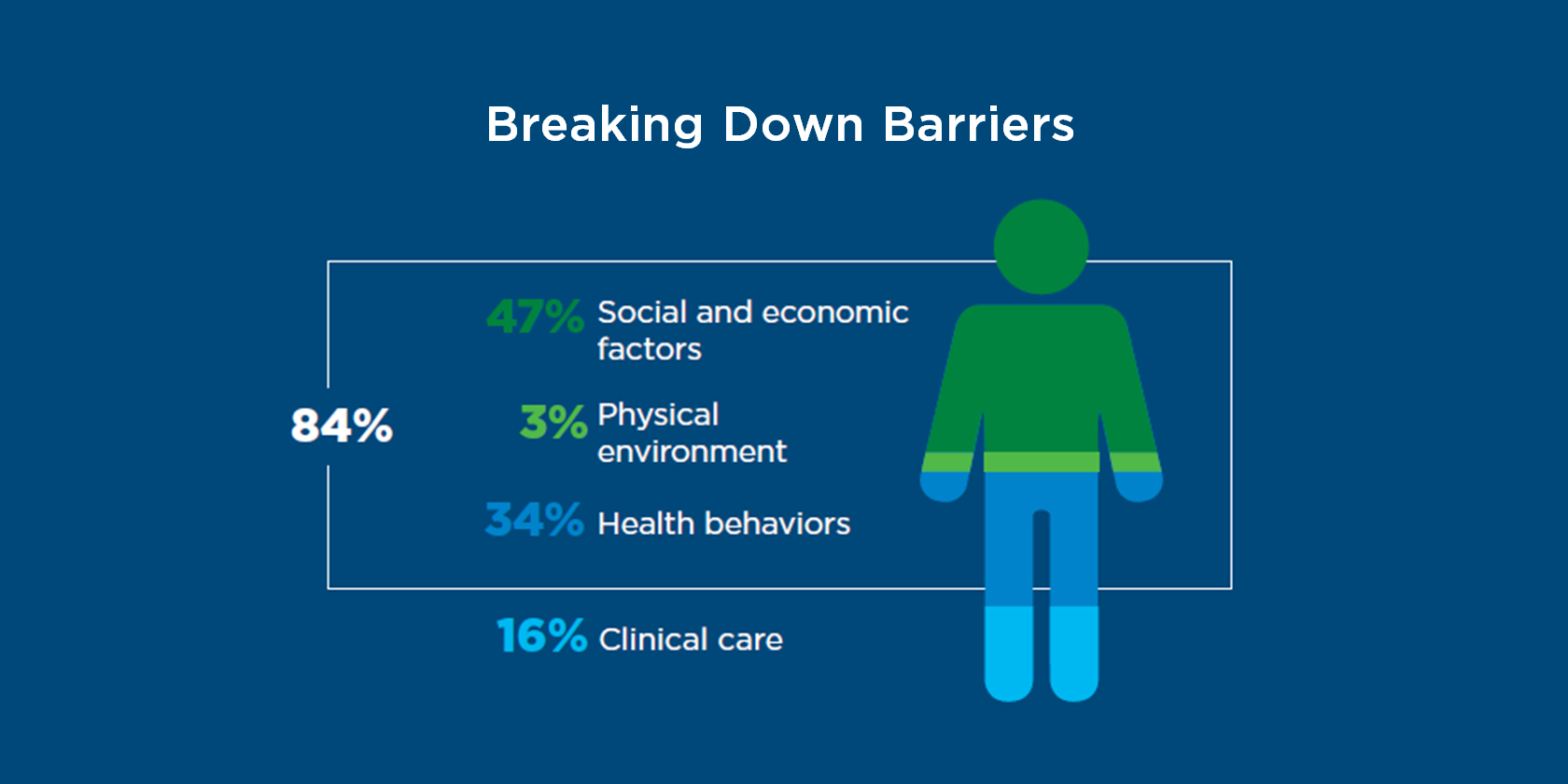
Going beyond clinical care to address underlying barriers to patient health.
You know there’s more to your patients’ overall well-being than their physical health. But there’s also more to addressing their overall wellbeing than the choices they make and the clinical care you provide. Social determinants of health (SDOH) are the conditions in the environments where people are born, live, learn, work, play, worship, and age that affect a wide range of health, functioning, and quality-of-life outcomes and risks.
According to Health People 2030, social determinants of health (SDOH) can be grouped into the following five domains:
- Economic Stability
- Education
- Social and Community Context
- Health and Health Care Access
- Neighborhood and Built Environment
How do Social Determinants of Health Impact a Patient’s Health?
Social barriers to care can impact health outcomes in various ways. Barriers to stable income and housing, nutritious and sufficient food, reliable transportation and other SDOH can all affect a person's overall health and quality of life.
For example, a lack of economic stability can lead to food insecurity making it difficult for a person to make nutritious choices. Educational barriers like low literacy can hinder a patient's understanding of medical instructions. Social isolation, discrimination, and environmental factors like poor housing conditions also have profound effects on mental and physical health.
See the impact on a seemingly simple health behavior, such as taking a prescribed medication, below:

The Importance of Social Determinants of Health
As illustrated in the example above, SDOH can significantly influence patients’ health. In fact, studies show clinical care only accounts for 16% of the health outcomes, with non-clinical factors accounting for over 80% of the outcomes.
Below is a breakdown of factors that impact a patient’s overall well-being:
- 47% Social and economic factors
- 3% Physical environment
- 34% Health behaviors
- 16% Clinical care
Despite the significant impact of SDOH, only 15% of physician practices screen patients for key social needs. This highlights a gap for physicians to identify and address these factors more effectively.
How Do We Address Social Determinants of Health Among Patients?
Addressing these SDOH requires efforts on both a practice level and a community level. For physicians, you can start by screening for social needs to identify your patients' challenges, integrating social care into patient care, partnering with community resources, and advocating for policy changes can also play a significant role.
Educating patients about available resources can help mitigate the impact of SDOH. To gain a deeper understanding of some SDOH and how to help address them, you can explore additional resources offered by CareAllies below. By identifying and understanding these challenges among your patients, you can provide a deeper level of support to guide them to better health.
To read more insights on our “Breaking Down Barriers” series, check out our articles on Environmental Condition and Housing Instability, Challenges in Health Literacy, Food Insecurity, Violence and Abuse and Loneliness and Isolation.
CareAllies is a leading service supporting physicians in successful value-based care. Learn more about what we do and contact us to explore how we can assist you in your journey.